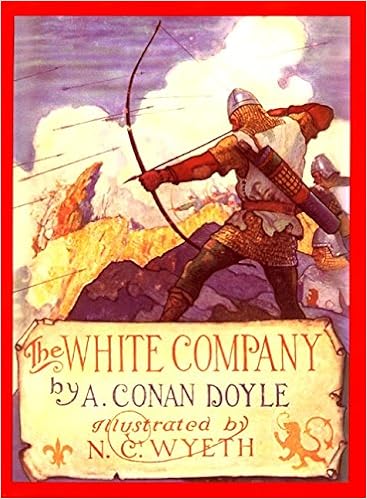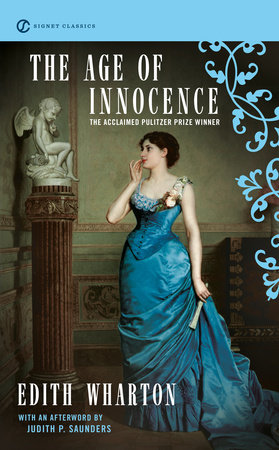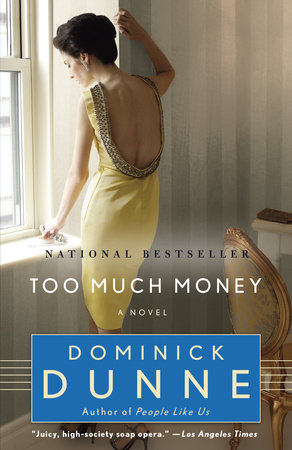Warning! Spoilers Here Abound!
Louisa May Alcott’s Jo March Isn’t a Good Enough Jo March, So Gerwig Turns Little Women Into Herself and Additional Thoughts
This is the novel that sold so well, another volume was demanded, in which everybody got married. But in the film both novels become Jo's first book, her first published novel. Though Gerwig Jo doesn't, Alcott's second half of Little Women, has Jo publishing a messy, unsuccessful novel.
Nor is this Gerwig Jo March's Little Women publishing experience Louisa May Alcott's. Alcott was invited to do a book of interest to the young women's market after she'd become lauded as a writer to watch. This happened while an account of her Civil War nursing in Washington D.C. was published serially as Hospital Sketches, in the abolitionist magazine Boston Commonwealth. Edited by family friend, Franklin Benjamin Sanborn, advised Alcott to edit and to slightly fictionalize her experiences, nursing wounded soldiers, union and confederate, in a D.C. hospital. She was advised to change people's names, create vividly detailed "sketches" rather than a tightly structured thematic whole. she clearly was a master composer within this reader-pleasing formula.
This is the formula for all her many best sellers, from the first volume of Little Women, to Little Men and Jo's Boys, to An Old-Fashioned Girl -- which was two parts / volumes too, like Little Women -- Eight Cousins, Rose In Bloom, Under the Lilacs, and many others that aren't so well known.
These are real novels written by a real writer, not imagined meta novels within Little Women. Changing this is as pernicious as another screen adaptation in which Beth doesn’t die.
~ ~ ~
. . . . Next to consider is that the readers couldn’t have had Little Men without Professor Bhaer. He is a very particular character who can make this very particular marriage -- and he isn't a character in the first volume of Little Women. Film Bhaer is entirely a creation of Gerwig, not Alcott's. Film Bhaer has no place in the second Little Women volume or in the subsequent March Family Chronicles, or in Alcott's life -- or perhaps there is a version?* Gerwig ends the film with a sexy, young, handsome Professor Bhaer viewed through a gauzed lens. Gerwig professes this marriage of Jo and Bhaer is fictional, inserted into the fiction of a fictional novel that Little Women’s fictional author, Gerwig's Jo March, writes, that we are to take as the actual Little Women novel written by real world novelist of the post War of the Rebellion era author, Louisa May Alcott.
In order to do this, not only does Gerwig change Bhaer's appearance and age, she omits to include the two young nephews whom he is supporting, caring for, and educating. Emil and Franz play with the daughters of the boarding house proprietor, Mrs. Kirke; the girls are the reason Jo is at Mrs. Kirke's and in New York City. She's been hired to teach and care for the little girls. It's a job, one that pays a little, isn't onerous -- unlike the variety of jobs real Louisa May Alcott and her mother had to do. Mrs. Kirke's friendship with Jo's mother means Jo is further well-treated, including time off and time to write.
However, Gerwig has Her Jo do what a woman like Gerwig can do, go on a young, privileged woman's after college walk-about to NYC, to find herself, and become a pro. And thus there the film begins, in NYC, with Jo leading a bohemian life-style of the later 20th century privileged white girl who has a prosperous family to go back to when / if things sour. This is not Jo's entitlement, or even Alcott's. It leaves out what Alcott's Daily Volcano's editor says Alcott's Little Women, Vol. 2, about Alcott's writer Jo -- "Poor but proud. She'll do." Meaning, she can depended to deliver the required column inches on time and for little cost.
The chapter titled, "Jo's Journal" describes Jo's and Professor's growing friendship and respect within the context of the boarding house and through the children. The first time Jo notices Bhaer, he takes a coal scuttle from a little scullery girl to carry up the stairs himself. "It goes better so. The little back is too young to haf such heaviness." She is so impressed by this she describes him and the scene to her family via the letter-journal.
She and Professor see each other frequently, informally, within a domestic context, his and hers. The house's little scullery girl, at the bottom of the social - financial scale, far below either poor Professor Bhaer or poor governess-minder Jo. Over the winter Jo learns as well as kind, the Professor is intelligent, much liked and respected for his learning with academic and intellectual circles. This is the sort of man that a woman like Jo, with her upbringing, would see worth living with, not a rather glamorous, but slightly weak, slightly flibbertigibbet, Laurie, right?
So -- within the novel Jo very much wants to marry the kind, learned, cuddly, older, stout, perpetually rumpled German professor. A writer from and of the multi-chambered heart, Alcott’s much too wise a writer to create a fake relationship for her characters, whether or not she may have preferred to write a novel about boys or women who poison their rivals.
Examine this within the context of the following two March novels, Little Men and Jo’s Boys. In Alcott’s March family universe, Jo does write a novel that is described as a few sketches of Jo and her sisters growing up, and made her, as Alcott describes it, "accidentally" rich and famous. Notice, this book is written years after Jo and Bhaer marry, not written by a far too attractive, bursting with energy, young Jo March. It is a book written by a woman who has experienced all that Jo March has experienced of pain, loss, insecurity and illness, as well as fun, joy and great affections and love.
The information about this fictional book of Mrs. Jo, as she is called, comes in "Jo's Last Scrape " Chapter Three of Jo's Boys." Here the narrator describes for "insatiable" readers, what a day of a famous, lionized writer is like.
This best seller was written during a period of financial desperation for the Bhaers and Plumfield. While the causes of this financial crisis aren't sketched, one is given the sense it had to do with a loss of pupils to keep Plumfield (which now is a thriving, co-educational college) -- just as Bronson Alcott's school had to close due to loss of pupils for including a free child of color in his classes. Alcott significantly writes that Laurie and Amy would have helped them, but were in Europe, didn't know about the plight of the school, and were not informed. It is also implied that the start of funding to turn Plumfield into a college, with buildings and a student body far grander than the small boy's school of Little Men comes from that best seller, and Jo's subsequent best selling writing and famous name -- plus, of course, backing, presumably by the Lawrence and March names and others -- Jo's father too has become a rather renowned figure, lecturing on philosophy.
Best of all, this upholds that great American foundation of all faith: If we keep persevering and working hard and are good we will succeed! We don't believe Alcott believed that either, but saying so made her rich indeed. It leaves out what Alcott's Daily Volcano's editor says about Alcott's writer Jo in Alcott’s Little Women vol 2 -- "Poor but proud. She'll do." Meaning, she can depended to deliver the required column inches on time and for little cost.
It's in this chapter we can see Gerwig's Jo March / Bhaer / Mrs. Jo, just as we see Gerwig's Jo in Alcott learning her formula from Hospital Sketches.
Additionally consider, with Jo's own children much older than they are in the halcyon Plumfield days described in Little Men, and no 'little men pupils' to care for, further, due to illness, Jo must spend her recuperation -- doctor's orders -- resting, in a room by herself. Jo has the time and space to write again!
This is the story of so many women who wish to write or pursue an interest that isn't just a paycheck and / or with families whom they very much want and love, who even have written and been published. But the need to support oneself and one's family, and care for that family leaves no time and no space to write. If Virginia Woolf, who wrote A Room Of Her Own, had read the March Chronicles, she'd immediately recognize how significant it is to this book. In fact, the point of this chapter in Jo's Boys is how everyone thinks a writer can always be interrupted, everyone, from family members to perfect strangers, who, often, because they're fans, believe they have the right to do so. Deadline approaches and fans are interfering with making money! Writing has become a paycheck too!
As well the narrator of Jo's Boys could be presumed as speaking as herself, Louisa May Alcott, the writer of The March Chronicles, at the conclusion of "Positively the Last Appearance," the final chapter of the final March novels. The narrator heartily wishes that a catastrophe would be allowed. Here follows the final paragraph of "Positively The Last Appearance" --
It is a strong temptation to the weary historian to close the present tale with an earthquake which should engulf Plumfield and its environs so deeply in the bowels of the earth that no youthful Schliemann could ever find a vestige of it. But as that somewhat melodramatic conclusion might shock my gentle readers, I will refrain**, and forestall the usual question, 'How did they end?' by briefly stating that all the marriages turned out well. The boys prospered in their various callings; so did the girls, for Bess and Josie won honours in their artistic careers, and in the course of time found worthy mates. Nan remained a busy, cheerful, independent spinster, and dedicated her life to her suffering sisters and their children, in which true woman's work she found abiding happiness. Dan never married, but lived, bravely and usefully, among his chosen people till he was shot defending them, and at last lay quietly asleep in the green wilderness he loved so well, with a lock of golden hair upon his breast, and a smile on his face which seemed to say that Aslauga's Knight had fought his last fight and was at peace. Stuffy became an alderman, and died suddenly of apoplexy after a public dinner. Dolly was a society man of mark till he lost his money, when he found congenial employment in a fashionable tailoring establishment. Demi became a partner, and lived to see his name above the door, and Rob was a professor at Laurence College; but Teddy eclipsed them all by becoming an eloquent and famous clergyman, to the great delight of his astonished mother. And now, having endeavoured to suit everyone by many weddings, few deaths, and as much prosperity as the eternal fitness of things will permit, let the music stop, the lights die out, and the curtain fall for ever on the March family.
“I hated Alcott’s choice of Jo’s marriage. Fixed that marriage for ya. Ain’t I the clever one.”
Dusts hands.
The End.
Yet there was so much more in Alcott's Jo and Joe's Professor.***
~~~~~~~~~~~* More about why Jo March loves Professor Bhaer and can marry him in Part III.
** Can't do that because it would kill her golden goose.
*** See the current Jane Austen travesty running on PBS – Sanditon. Wasn’t Death Comes To Pemberly bad enough for them?















